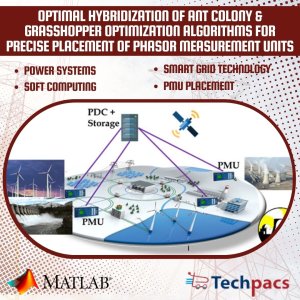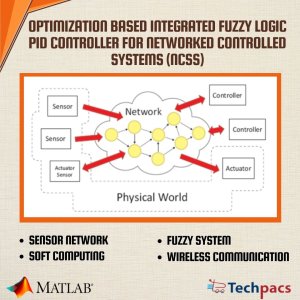Improved Optimization Approach using Hybrid Algorithms for ELD in Microgrids
Problem Definition
The existing literature highlights a pressing need for more efficient methods to reduce costs and emissions of harmful gases in the environment. While the whale optimization algorithm (WOA) has shown promise in economic load dispatch (ELD), emission dispatch, and combined economic-emission dispatch (CEED), its drawbacks pose significant limitations. The slow convergence rate and easy localization of WOA lead to inaccuracies and inefficiencies, as the algorithm is prone to getting stuck in local minima. Moreover, the exploration and exploitation capabilities of WOA may result in longer computational times when dealing with complex and nonlinear constraints. These disadvantages of the WOA approach ultimately hinder its performance and necessitate improvements in order to address the challenges faced in cost and emission reduction strategies.
Objective
The objective is to address the limitations of the traditional Whale Optimization Algorithm (WOA) by introducing a hybrid optimization model for economic load dispatch, emission dispatch, and combined economic-emission dispatch in microgrids. By combining nature-inspired optimization algorithms and utilizing renewable energy sources, the aim is to improve accuracy and efficiency while reducing fuel and emission costs. The approach seeks to overcome the drawbacks of the WOA technique such as slow convergence rate, easy localization, and local minima issues, ultimately leading to enhanced results and more sustainable energy solutions.
Proposed Work
The proposed work aims to address the limitations of the traditional WOA approach by introducing a hybrid optimization model for economic load dispatch, emission dispatch, and combined economic-emission dispatch in microgrids. By combining nature-inspired optimization algorithms and utilizing renewable energy sources, the model seeks to improve accuracy and efficiency while reducing fuel and emission costs. The selection of hybrid optimization algorithms is based on the idea that the weaknesses of one algorithm can be compensated by another, ultimately optimizing the overall performance of the microgrid system. This approach will help overcome the slow convergence rate, easy localization, and local minima issues associated with the WOA technique, leading to enhanced results and more sustainable energy solutions.
Application Area for Industry
This project can be utilized in various industrial sectors such as energy, power generation, and environmental management. The proposed solutions of using hybrid optimization algorithms and integrating renewable energy sources can be applied in industries facing challenges related to economic load dispatch, emission reduction, and maintaining uninterrupted power supply. By implementing these solutions, industries can benefit from reduced fuel costs, lower emission levels, and increased efficiency in power distribution. The use of nature-inspired optimization algorithms can overcome the limitations of traditional methods, leading to improved overall performance and more sustainable operations in sectors where energy optimization and emission reduction are critical.
Application Area for Academics
The proposed project can enrich academic research, education, and training by addressing the limitations of traditional optimization algorithms such as the Whale Optimization Algorithm (WOA) in solving economic load dispatch (ELD), emission dispatch, and combined economic-emission dispatch (CEED) problems. By introducing a hybrid optimization approach that combines WOA with other nature-inspired algorithms such as the Cuckoo Search Algorithm (CAT), the project aims to improve the accuracy and efficiency of these optimization tasks.
This research has the potential to advance the field of renewable energy integration in Microgrids by utilizing hybrid optimization techniques and incorporating renewable energy sources (RES) to minimize fuel and emission costs while ensuring a stable power supply. By demonstrating the effectiveness of this approach, the project can contribute to the development of innovative research methods and simulations for optimizing energy systems in educational settings.
Researchers, MTech students, and PhD scholars in the field of optimization, energy systems, and renewable energy can benefit from the code and literature generated by this project.
By exploring the hybrid optimization algorithms and their applications in solving complex energy optimization problems, academic researchers can enhance their understanding of advanced optimization techniques and simulation methodologies.
The future scope of this project includes expanding the application of hybrid optimization algorithms to other energy optimization problems, exploring new combinations of optimization techniques, and further improving the efficiency and accuracy of renewable energy integration in Microgrids. By continuing to innovate in the field of optimization for energy systems, the project can contribute to the advancement of sustainable energy solutions and support academic research, education, and training in this important area.
Algorithms Used
The Whale Optimization Algorithm (WOA) is a nature-inspired optimization algorithm that mimics the hunting behavior of whales. It is used in the proposed work to optimize the economic load dispatch (ELD) problem and minimize the fuel costs of the Microgrid system. WOA helps in finding the optimal solution by updating the position of virtual whales in the search space.
The Cuckoo Search Algorithm (CAT) is another nature-inspired optimization algorithm that is based on the brood parasitism of some cuckoo species. CAT is employed in the proposed work to address the emission dispatch and Critical Energy-Efficient Dispatch (CEED) problems in the Microgrid system.
CAT searches for the optimal solution by mimicking the breeding behavior of cuckoos and replacing the host eggs with their own.
By combining WOA and CAT in the proposed work, the model aims to enhance the accuracy and efficiency of the optimization process for the Microgrid system. The hybrid approach will leverage the strengths of both algorithms to overcome the limitations of each and achieve better overall performance. Additionally, the integration of renewable energy sources (RES) in the optimization process will help in reducing fuel costs, minimizing emissions, and ensuring a reliable power supply for the Microgrid.
Keywords
SEO-optimized keywords: Whale Optimization Algorithm, WOA, Cuckoo Search Algorithm, CAT, Hybrid Algorithm, Multi-objective Optimization, Economic Emission Dispatch, Renewable-Integrated Microgrid, Renewable Energy Sources, Energy Management, Power Generation, Energy Efficiency, Power Electronics, Emission Reduction, Microgrid Optimization, Sustainable Energy, Energy Resources, Renewable Energy Integration, Nature-Inspired Optimization Algorithms, Optimization Algorithms, Fuel Cost Reduction, Emission Reduction, Hybrid Optimization, Environmental Optimization, Green Energy, Clean Energy Solutions, Energy Optimization, Energy Sustainability, Green Technology.
SEO Tags
whale optimization algorithm, WOA, cuckoo search algorithm, CAT, hybrid algorithm, multi-objective optimization, economic emission dispatch, renewable-integrated microgrid, renewable energy sources, energy management, power generation, energy efficiency, power electronics, emission reduction, microgrid optimization, sustainable energy, energy resources, renewable energy integration, PHD research topic, MTech research topic, research scholar, optimization algorithms, nature inspired optimization, fuel cost reduction, harmful gases emission, hybrid optimization algorithms, renewable energy integration, energy sustainability, power supply optimization
| Shipping Cost |
|
No reviews found!

















































No comments found for this product. Be the first to comment!